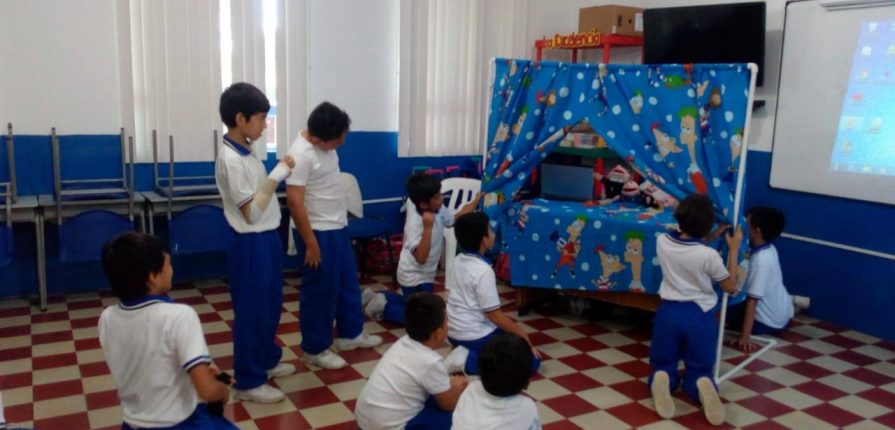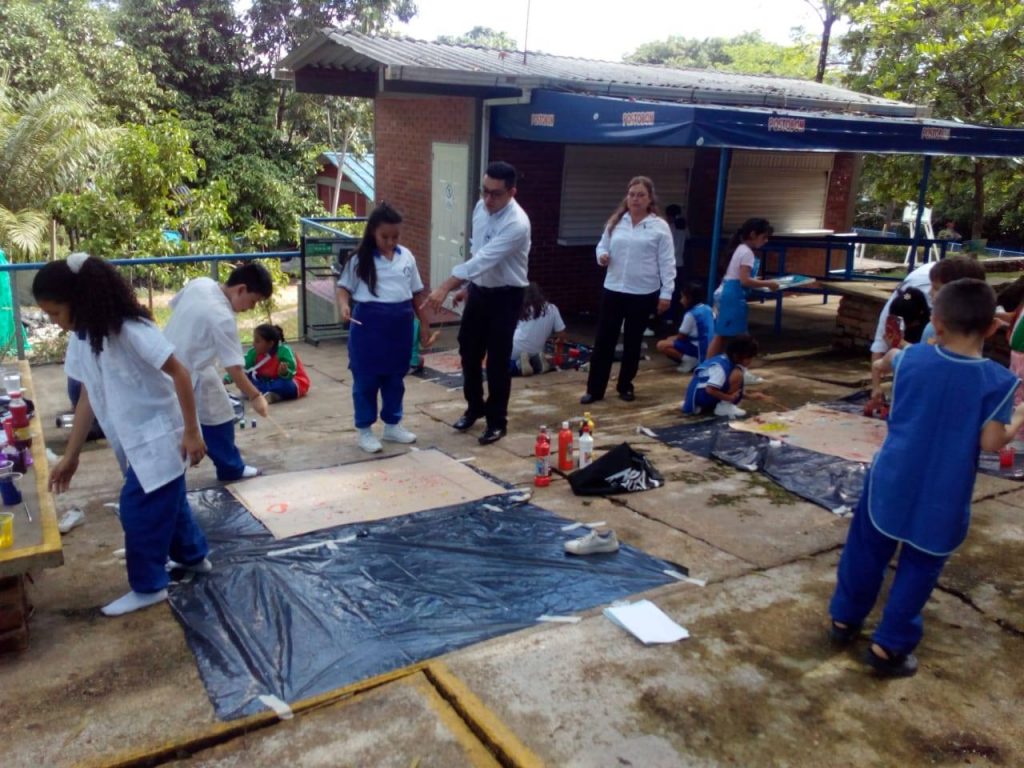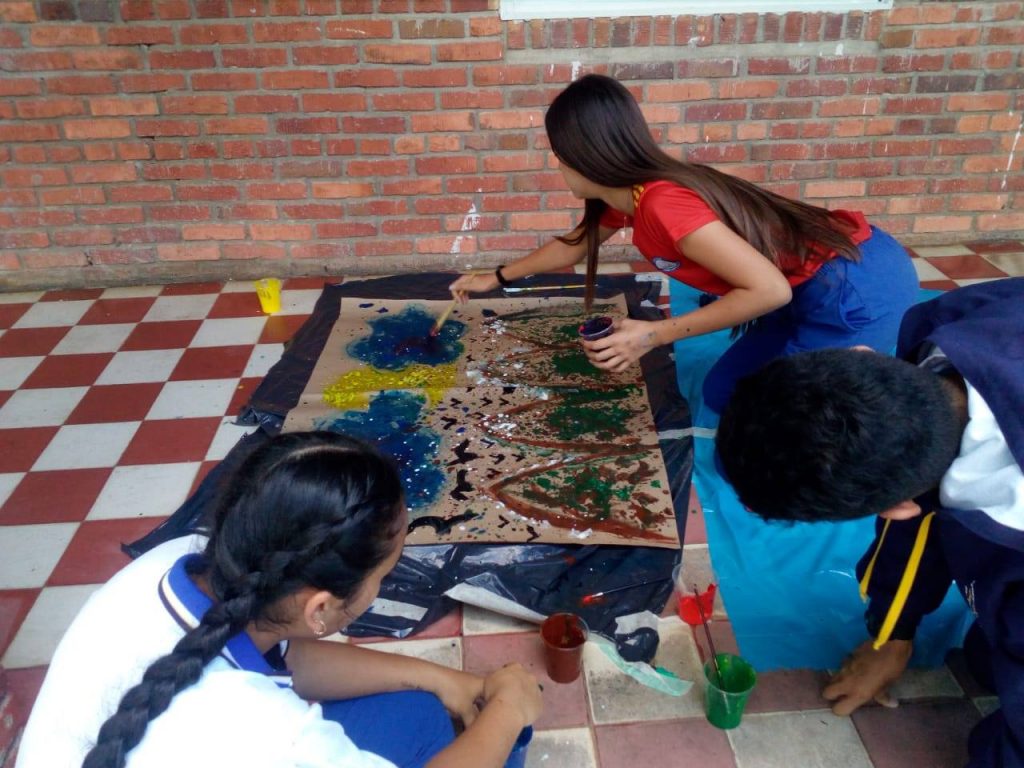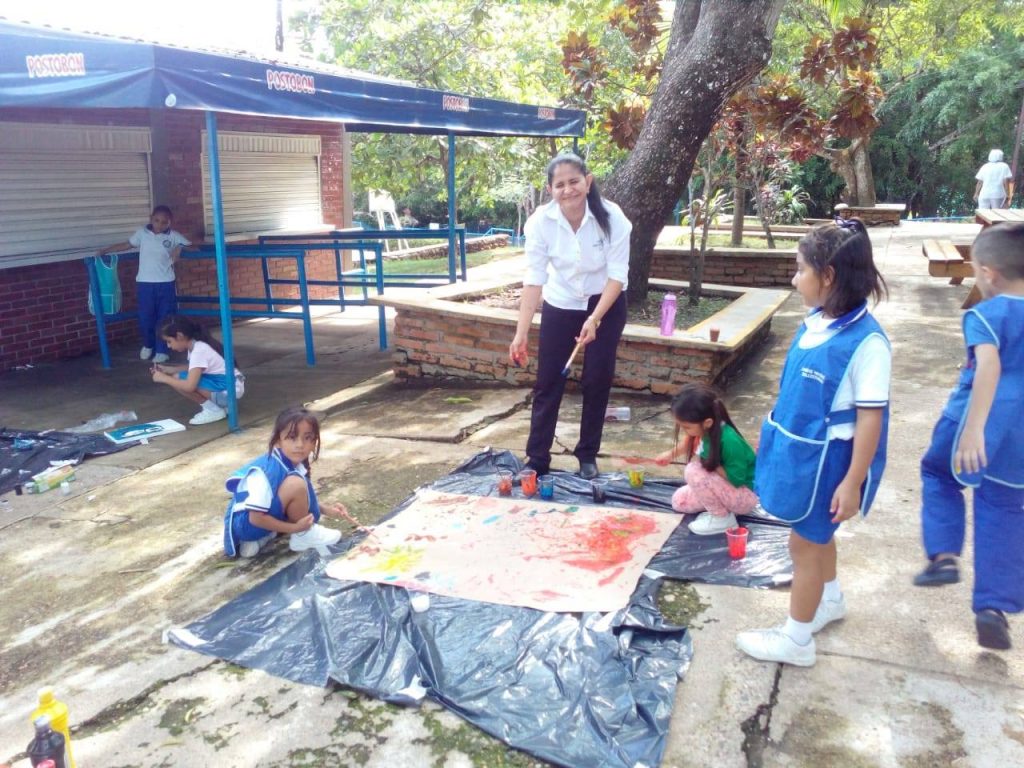Have you ever learned English through arts? Have you ever considered learning English while you develop your cultural talents? At Luis Lopez de Mesa School, the students had the opportunity to practice and learn English by means of painting, singing, playing instruments, acting and working with clay.
School Carnival was the topic of the second immersion, which aimed at practicing and developing the English skills in students, it took place on June 12th at our students’ host home. In this occasion, students and teachers had the opportunity to show their talents in music, painting, sculpture and theatre.
Each talent had a guide teacher who explained and gave ideas to work during the immersion. In painting, the teachers worked with the Pollock technique, which consisted of leaving paint marks in the canvas randomly, trying to express their feelings and thoughts.
In sculpture, students designed wonderful cartoons with clay. They received instructions and suggestions in English, with the purpose of being fully engaged in the immersion. Some of the students made wonderful creations of animals.
In theatre, our students had the opportunity to put into practice their oral and improvisation skills in English, following some directions. Additionally, other students had the opportunity to work with puppets getting students involved in the activity and with the language.
Finally, in music, students played and sung a British song “Whatever” of the English band Oasis. In this talent, the English and Music teachers supported students. Our kids were divided into two groups, the ones who wanted to play the instruments and the ones who wanted to sing, creating an English choir.
To sum up, the School Carnival activity was an opportunity to mix the arts and the English learning process. The main idea of this activity was to encourage to all the educational community, students, teachers, administrative staff and parents, to participate and show their cultural skills and practice English outside of the classroom and forgetting the traditional process that some of them were accustomed to.










Comentarios recientes